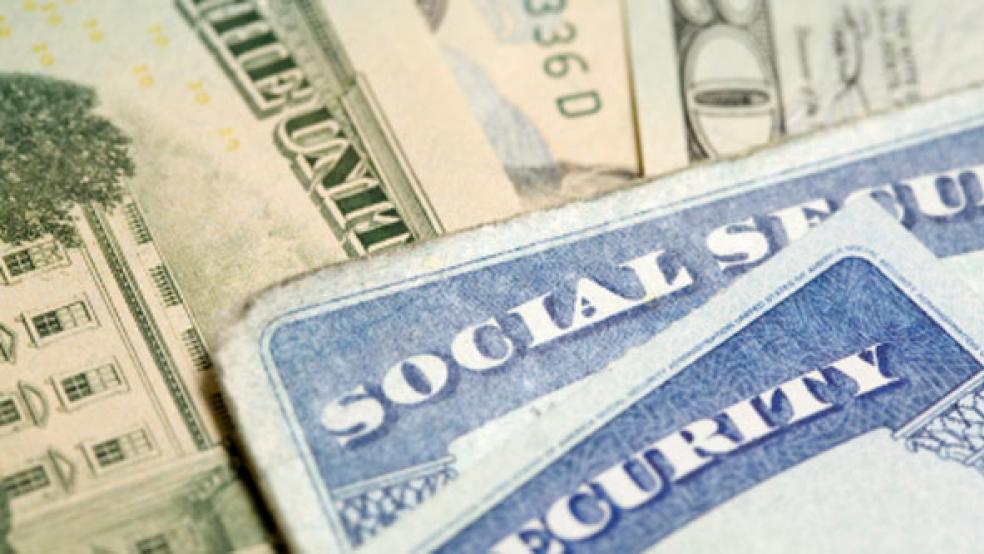The Social Security Administration is routinely under scrutiny for botching benefit payments, such as accidentally paying out $600 million to dead Americans because their files hadn’t been updated.
Now, the SSA is back in the hot seat after a new report confirms that the agency doled out at least $20.2 million in benefits to more than 130 suspected Nazi war criminals since 1962, according to the Associated Press.
Related: Social Security Watchdog: I See Dead People
A soon-to-be released Inspector General report, prompted by an investigation by the AP last year, found that the Justice Department used legal loopholes to allow suspected Nazis to retain Social Security benefits in exchange for leaving the country.
The DOJ has denied those claims, and also rejected the AP’s request to provide the names of the suspected Nazis who allegedly received benefits.
Following the AP’s story, Rep. Carolyn Maloney (D-NY) requested the IG conduct its own investigation. The report is expected to come out this week. However, ahead of its release, Maloney told the Associated Press that the federal auditors concluded that at least 133 alleged and confirmed Nazis concealed their identities from the government and received millions in benefits.
The IG report comes just months after Congress approved the No Social Security for Nazis Act, which stemmed from last year’s AP investigation. The measure closed the loophole allegedly used by DOJ--and uncovered by the AP--to provide suspected Nazis with Social Security to persuade them to leave the United States. The IG report says the Social Security
Related: Social Security Overpays $1.3 B in Disability Benefits to 36,000
Administration “properly stopped payment” for at least four beneficiaries confirmed to be Nazi war criminals after the law went into effect. However, the auditors said one individual continues to receive payments because he “was not subject to the law,” according to the AP.
The IG’s findings are just the latest embarrassment for the agency, which was flagged earlier this year for keeping records of people without knowing that they had been dead for decades.
At the time, the IG said the SSA’s electronic filing system had Social Security numbers for more than 6.5 million people who were born before June 1901 and whose deaths were never documented. Those Social Security numbers, the auditors said, were especially vulnerable to fraudsters, who could use them to apply for government benefits and have a very slim chance of getting caught.
Separately, an IG report in 2011 found that the SSA had doled out more than $600 million to dead federal workers because of poor record-keeping and lax oversight.
Related: Social Security Has Squandered $300 Million on Technology
The agency has also struggled to defend itself against fraud while handing out billions in benefits. In 2014 alone, the government paid out about $5 billion in questionable payments through the Supplemental Security Income program.
While some of those benefits could have been accidentally delivered to the wrong people, others were likely fraud. Last year, there were several instances of high-profile fraud cases—including one in which a group of retired New York police officers and firefighters were falsely reporting mental illnesses stemming from 9/11 to collect more than $23 million in Social Security Disability benefits.
Last August more than 70 people were indicted in Puerto Rico after investigators found that three doctors and a former SSA employee had been helping people falsify their applications in order to qualify for benefits.
And just last month, the IG reported that the SSA paid out more than $520,000 in benefits to convicted sexual predators at various confinement facilities across the country.
Related: Social Security Cheats Bilk Taxpayers in the Billions
The slew of fraud cases prompted a congressional hearing, but SSA officials maintained that despite media attention surrounding high-profile fraud cases, fraud at the agency is relatively rare.
SSA’s acting Commissioner Carolyn Colvin told lawmakers at the time that in order to continue fraud prevention, the agency would need more money. She noted that in the last two years, Congress had appropriated $421 million less for “program integrity reviews” than was authorized in 2011.
Top Reads from The Fiscal Times:





